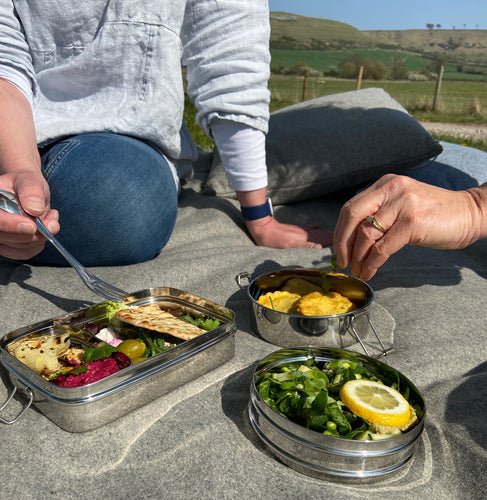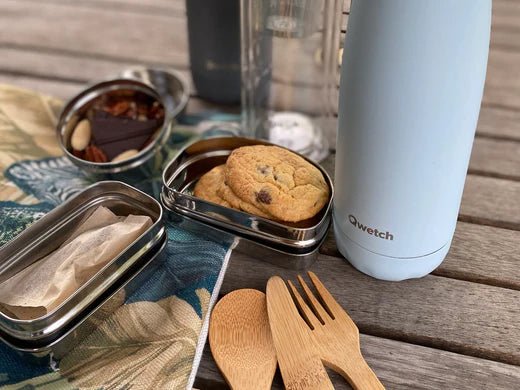Creative ways to reduce your use of single use plastics & reuse what you already have
Reducing single use plastic doesn't have to mean buying all new reusables. We cannot shop our way out of an excess of plastic in the world! The most eco-friendly thing to do is always use and reuse what you have.

Ignore contrived eco-pressure, mostly from social media, to have beautiful ‘sustainable’ homes. Homes where not a scrap of plastic exists. Some popular zero-waste accounts can make you feel that the only solution is to get rid of useable plastic items. Whereas it may well be that you have perfectly good items that can be used and reused again and again to reduce reliance on single use. Or you may have items which can be repurposed. Making reusable cloth wipes out of an old towel, tee towel or even a favourite tee shirt that has become too worn out to wear is a perfect example.
It's worth remembering that even 'Eco-Friendly' items have an impact on the environment and any purchases should be carefully considered.
For example: 'Bags for Life' plastic bags need to be used 4 times in order for them to be more environmentally friendly than single-use plastic bags. Paper bags need to be reused 3 times, and cotton bags need to be reused over 130 times before they are more environmentally friendly than a single-use carrier bag. (Source: EA LCA assessment).
Production of paper and cloth bags produces a greater amount of pollution than plastic bags, so there's more to think about than simply ease of disposal.
USEFUL REUSES

Here are a few ideas of items you can reuse or repurpose to cut down on single use plastic:
- Make flannels and cloth wipes instead of using disposable wipes
- Use beeswax wraps instead of plastic film
- Freeze foods in glass jars
- Wrap bread in cloth bags or t towels
- Reuse any existing 'Tupperware' or takeaway containers until they break-tomato stains are not Instagram worthy but they don't matter!
ACTIONS YOU CAN TAKE
- Shop at bulk stores and refill stations
- Get milk delivered or use a milk vending station with your own bottles
- Look for solid and plastic free versions of your home cleaning, beauty and personal care products. For example shampoo and conditioner bars, shower blocks, toothpaste tabs, laundry sheets, cleaning refill pods.
USEFUL KITS
Set up a few useful kits so you have everything ready and together, then you'll be much more likely to remember them.
- A going out kit - reusable bottle, coffee cup, folded bag in your pocket, snack container
- A shopping kit - produce bags, containers for meat or bulk dry goods like cereal, shopping bags
- A holiday/weekend away kit - shampoo & conditioner bars, shower block, laundry sheets, plus your reusables kit!
BUYING GIFTS
Look for plastic free packaging, plastic free (naked) cards and gift wrap that is natural. We highly recommendGreen Tulip for gifts. They only ever use plastic free gift wrap and packaging for their beautiful selection of ethical gifts.
Ditch the gift wrap for a paper bag or cloth scarf as part of the gift. The Japanese art of gift wrapping, Furoshiki is a beautiful way to present a gift.

BUYING SUSTAINABLE ALTERNATIVES
By all means, switch to more sustainably produced alternatives when items need replacing. If you need a new coffee cup, water bottle or lunchbox, shopping with a sustainable supplier will minimise the environmental impacts of your purchase. Have a look at the Everyday Green range of reusables for example.

In the meantime use your old plastic Tupperware with pride, tomato stains, and all. Reuse any plastic bags that come your way. Don’t get rid of useful things just because they don’t look the part. That's a far more sustainable way to live, and easier on you too.




